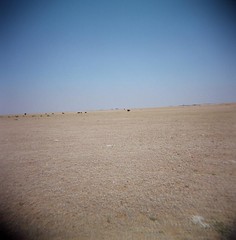A number of state's have voted recently to increase money for open spaces, or land that's not eaten up by development. Environmentalists see a number of benefits to setting land aside--it lets biodiversity thrive, cleans groundwater and gives people a place to go outside of suburbia.
Opponents say open spaces are either a detriment to the economy or an example of the government taking too much control of how people use land.
In an editorial today, the New York Times, says the recent state votes amount to a rebuke of the Bush Administration's decision not to fully fund the Land and Water Conservation Fund, which manages open spaces.
Sen. Harry Reid had wanted to bring up the open-spaces issue for debate at the end of this congressional session. According to the Times, Tom Coburn, of Oklahoma, brought that move to a halt--at least until next session.
From the NYT editorial:
We had hoped that Congress would approve the legislation in the current lame-duck session. On Monday, the Senate majority leader, Harry Reid, withdrew it from the calendar after Senator Tom Coburn, an Oklahoma Republican, threatened to filibuster the bill. Mr. Coburn called it a waste of money and an unnecessary expansion of federal control over public lands.
Mr. Reid said the Senate needed to focus on the economic crisis, but he promised to bring the measure up for immediate action early next year.
Old business tends to get lost in the early days of a new Congress, especially when there is a new administration. Come January, we will remind Mr. Reid of his promise and of the voters’ clear commitment to preserving open spaces.






